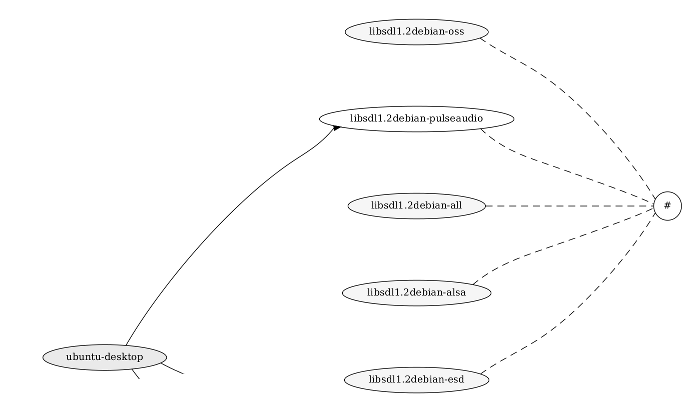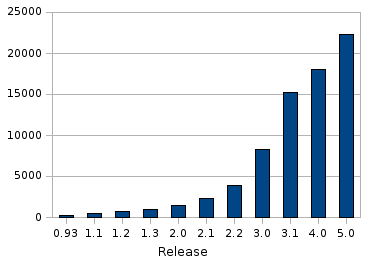Did you know that you can ask apt-get to invoke an external solver for handling the dependency hell that sometimes plagues your upgrades? Well, just now, again, this feature saved my day, and it is just a matter of typing a short option!
Instead of the standard
apt-get install libreoffice
that failed to propose a decent upgrade, as detailed later, I typed
apt-get --solver aspcud install libreoffice
that returned this pretty good solution
apt-get --solver aspcud install libreoffice Reading package lists... Building dependency tree... Reading state information... Execute external solver... The following extra packages will be installed: coinor-libcbc3 coinor-libcgl1 coinor-libclp1 coinor-libcoinmp1 coinor-libcoinutils3 coinor-libosi1 libabw-0.1-1 libcdr-0.1-1 libe-book-0.1-1 libetonyek-0.1-1 libfreehand-0.1-1 libgltf-0.0-0 libmspub-0.1-1 libmwaw-0.3-3 libodfgen-0.1-1 liborcus-0.8-0 libpython3.4 libpython3.4-minimal libpython3.4-stdlib libreoffice-base libreoffice-base-core libreoffice-base-drivers libreoffice-calc libreoffice-common libreoffice-core libreoffice-draw libreoffice-gtk libreoffice-impress libreoffice-java-common libreoffice-math libreoffice-style-galaxy libreoffice-style-tango libreoffice-writer libvisio-0.1-1 python3-uno python3.4 python3.4-minimal uno-libs3 ure Suggested packages: hyphen-hyphenation-patterns libreoffice-gnome libreoffice-kde libreoffice-grammarcheck libreoffice-l10n-4.3 myspell-dictionary unixodbc gstreamer1.0-ffmpeg libreoffice-officebean libreoffice-gcj libreoffice-report-builder libjtds-java libreoffice-mysql-connector libmyodbc libmysql-java libreoffice-sdbc-postgresql odbc-postgresql libpg-java libsqliteodbc tdsodbc mdbtools ocl-icd-libopencl1 libreoffice-style-crystal libreoffice-style-hicontrast libreoffice-style-oxygen libreoffice-style-sifr fonts-crosextra-caladea fonts-crosextra-carlito python3.4-venv python3.4-doc The following NEW packages will be installed: coinor-libcbc3 coinor-libcgl1 coinor-libclp1 coinor-libcoinmp1 coinor-libcoinutils3 coinor-libosi1 libabw-0.1-1 libcdr-0.1-1 libe-book-0.1-1 libetonyek-0.1-1 libfreehand-0.1-1 libgltf-0.0-0 libmspub-0.1-1 libmwaw-0.3-3 libodfgen-0.1-1 liborcus-0.8-0 libvisio-0.1-1 The following packages will be upgraded: libpython3.4 libpython3.4-minimal libpython3.4-stdlib libreoffice libreoffice-base libreoffice-base-core libreoffice-base-drivers libreoffice-calc libreoffice-common libreoffice-core libreoffice-draw libreoffice-gtk libreoffice-impress libreoffice-java-common libreoffice-math libreoffice-style-galaxy libreoffice-style-tango libreoffice-writer python3-uno python3.4 python3.4-minimal uno-libs3 ure 23 upgraded, 17 newly installed, 0 to remove and 1864 not upgraded.
So, next time you run into trouble, try the external solver, and wait the extra time (maybe 30 seconds)... it may be well worth the wait.
Just make sure you have aspcud and apt-cudf installed for this to work!

